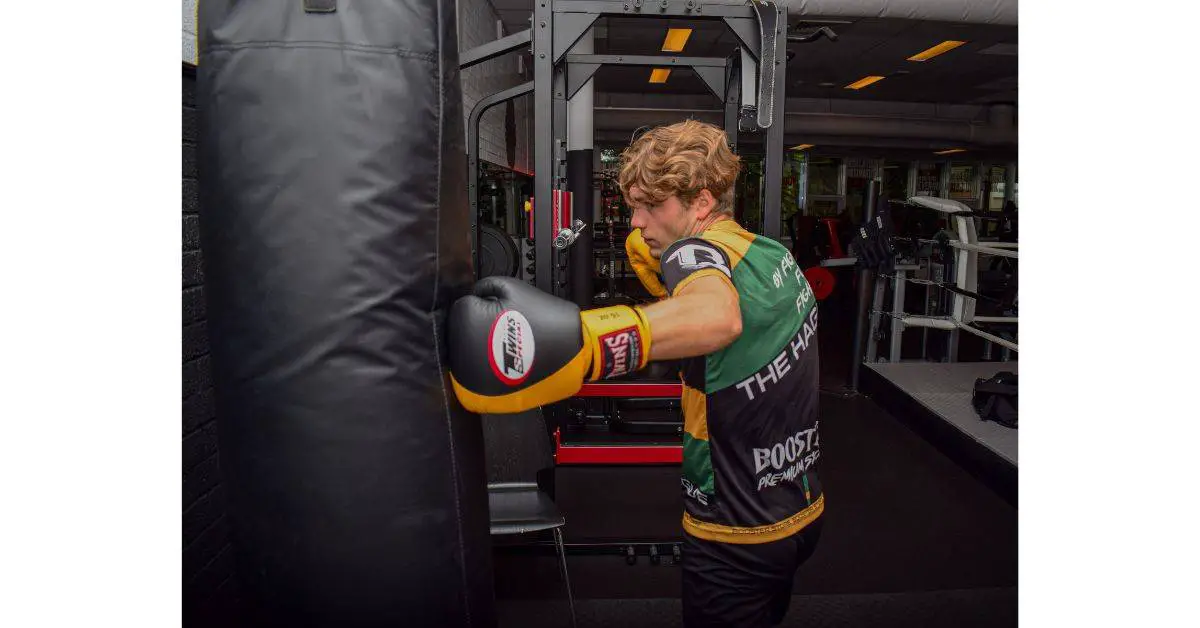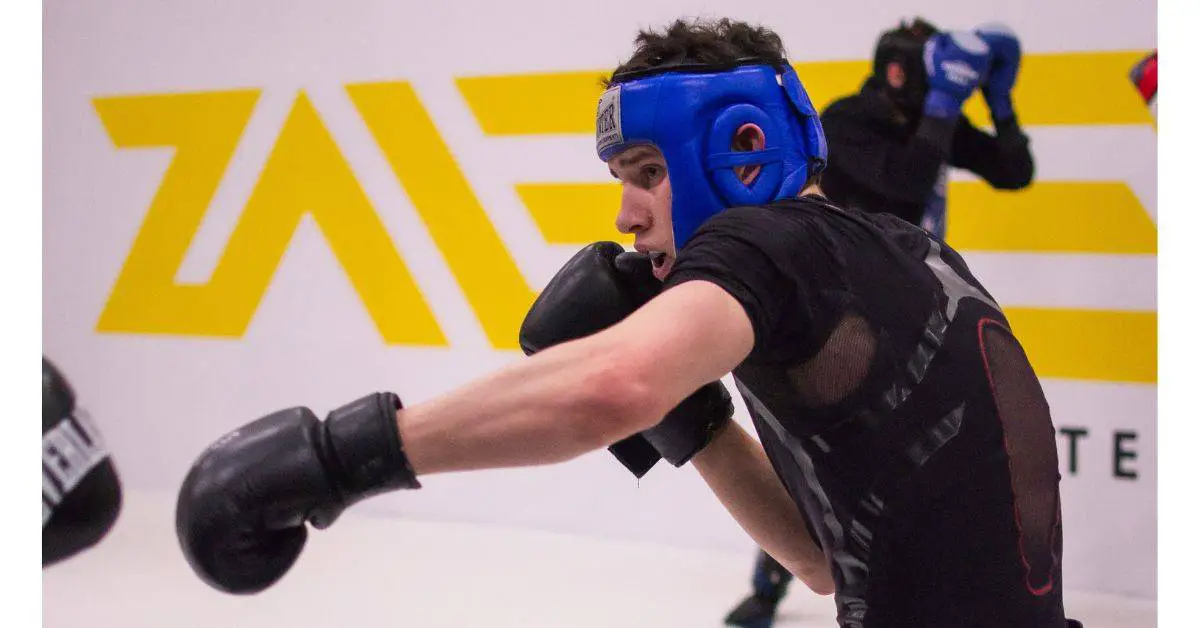Boxing is a high-impact sport—the muscles in your shoulders, arms, and hands take a beating during a boxing match. Therefore, your hands tremble after a fight or training session. I’ll get into the specifics of how to avoid hand shaking after boxing and why it happens. For now, let’s look at the causes of trembling hands.
Your hands shake after boxing because of intense training. One of the most common causes of shaky hands after boxing is overly fierce training. It frequently occurs after striking a heavy bag because doing so distributes a lot of power through your hands and, if done too violently, could cause tremors. Newbies do this.
Beginners unfamiliar with correctly hitting the heavy bag frequently engage in this behavior.
You should eliminate future hand shaking by concentrating on footwork and sliding. You don’t always have to hit it with hard blows; alternate between light and hard hits, hooks, and powerful crosses, sometimes effectively striking the bag.
Before we dive in, if you want to perfect your boxing technique, follow the link to read a complete guide I wrote on the topic.
Why do my hands shake after boxing
After boxing training, such as punching a heavy bag, it is normal for boxers to experience hand trembling, but this is usually nothing to worry about. However, in rare cases, it may indicate a life-threatening condition.
You may notice jerky motions and trembling hands and arms after boxing because your muscles contract in units known as motor units when you jab in boxing. Each unit has neuron-controlled muscle cells. When all motor units work, the jab is typically smooth. As you fatigue your muscles, some motor units will stop working.
Your hands are not the only body part that might experience tremors; any muscle you use can. But why do your hands shake after boxing?
- Your hands shaking after boxing might mean your workout is more difficult than you’re used to. There are instances when your body needs to prepare for when you push yourself to a new fitness level. Fatigue may arise from this, leading to muscles shaking uncontrollably.
- You exercised when you were exhausted. This indicates that your muscles had a demanding day and were no longer operating at their best when you worked out. They must exert themselves excessively to perform, which results in the shakes.
- You haven’t had the right nutrition. You will experience tremors if your muscles don’t receive enough glucose through your bloodstream, you become dehydrated, and your salt balance is off.
- Likewise, you aren’t getting enough rest. You must get the recommended amount of sleep for your body to repair and grow. Your muscles won’t have time to recover if you frequently work out but don’t get enough sleep. Stress from exercising them can induce trembling.
You may notice that your motions become jerky and that your hands and arms start to shake at this point. The hands shaking is a transient condition brought on by exhaustion of your muscles. After some rest, the shaking after exercise will stop. By taking a rest between rounds or training sets, you can help prevent and lessen shaking.
Ways to prevent hand from shaking after boxing
Hand shaking or trembling occurs for various reasons. You may notice it even after you’ve been away from the sport for a while. Your body may still need to become accustomed to intensive activity, which might cause your hands to shake when you hit the heavy bag, double-end bag, speed bag, mitts, or even sparring. It can happen after an intense boxing fight or training.

Newcomers also experience this, and it makes sense why – they likely have never thrown that many punches in one session, and once again, their body needs time to adjust to a new training regimen.
Let’s look at the ways you can prevent the hand from shaking after boxing.
#1. Proper nutrition and diet
Maintaining your energy and recuperating more quickly depends on proper nutrition. Additionally, it will lessen any shaking in your hands after boxing. Eating before your workout or battle will maintain your blood sugar and energy levels. A snack or light lunch should be consumed one to four hours before exercise, according to the Mayo Clinic. Greek yogurt and fruit or a turkey sandwich are healthy food options.
Your body will recuperate from exercise and require food to replace the carbs it burned off. The Hospital for Special Surgery suggests eating one hour after your workout.
Maintaining your electrolyte balance and avoiding weariness are both benefits of being hydrated. Don’t drink water while working out; do it all day long.
Drink lots of water throughout the day, not just during exercise, as dehydration is one of the main causes of trembling hands.
Water keeps your body’s electrolyte balance in check and aids in the removal of toxins from your muscles. It boosts your general energy level and enables your body to recuperate more quickly from strenuous activities.
If you want to read a complete guide I wrote on what to eat as a boxer, follow the link to learn all about this subject.
#2. Warm up, cool down, and take a rest
Keep in mind that you need to warm up and cool down. Even though these aspects of your workout may not be the most enjoyable, you shouldn’t skip them because they are just as necessary as the primary training.
If you exert your muscles and then take the time to stretch before and afterward, you can help your muscles get used to the strain you’re putting them through by doing so. They may have fewer shakes as a result of this because you will reduce the load on them.

Your body needs some downtime to recover after a rigorous boxing workout. Shaky hands indicate that your muscles are likely too exhausted and that you should take a break before starting the following training.
#3. Increase your strength and stamina
Work on increasing your strength, endurance, and stamina gradually. Take it easy if you’re a beginner or are resuming boxing after a long absence. When punching or moving quickly, it’s important to learn and use good techniques to avoid damage.
When exercising, if you notice that your body is trembling, take a break in between sets to let it recuperate. Lie down! You will require regular periods of sleep. Your rest includes getting enough sleep at night and taking rest days between intense workouts. Both aid in muscle recovery and can help ensure that tremors are no longer an issue.
Is hand shaking after boxing harmful?
A little trembling before and after a strenuous boxing workout is normal, but it normally goes away after two to three tranquil hours of rest. But it’s always best to consult your doctor if you have fainting, prolonged shaking, dizziness, or any of these symptoms after boxing.
Your hands shaking after boxing isn’t harmful. It is natural, especially after a rigorous boxing workout. The usual reason is muscle weariness brought on by malnutrition and dehydration. Other factors contributing to exhaustion and trembling hands are; incorrect fighting techniques, poor diet, fatigue, and dehydration.

Maintain a steady pace, and don’t overdo it to rack up extra repetitions. To maximize your training, blend soft jabs, punches, hooks, and tougher crosses with good footwork. You may feel proud by thrashing that punching bag and seeing it dance, but your hands will suffer the price.
Keep in mind that boxing is a race, not a quick finish. You’ll be alright if you replenish your body with water, a decent meal after your workout, and sufficient rest.
Final words
If you want to maximize your progression in the boxing gym, you must ensure you don’t overtrain. Such symptoms are usually found in novice trainees, as they’re more eager to train and learn more.
Once some time has passed, however, they’re less likely to experience hand shaking, as they’re less likely to overtrain themselves. I know it can be exciting to learn how to fight; but, keep in mind the risks and harmful consequences of overtraining.
If you enjoyed reading this article, you’ll also enjoy reading about whether boxers should take creatine.

